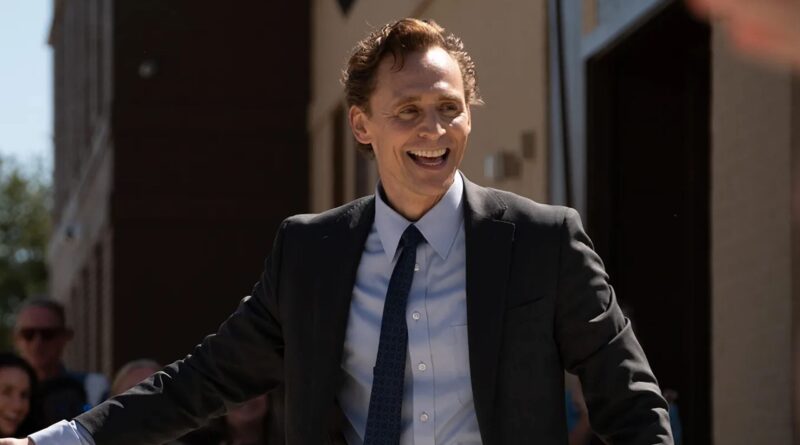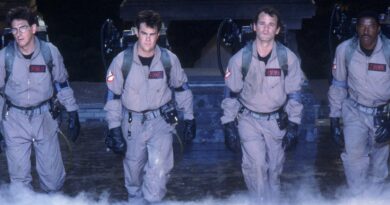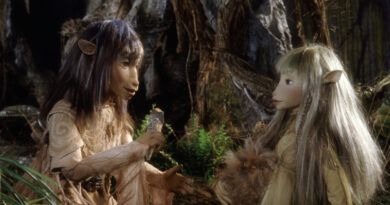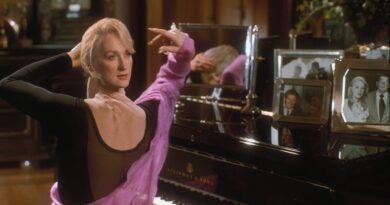The Life of Chuck (2025)
We all know of at least one horror movie based on a novel or short story by Stephen King. But the films based on his works in other genres tend to have more of a lasting impact, in great part because they’re better at conveying his oft explored themes of past traumas, the legating significance of storytelling, and resilience in the face of adversity. I have a feeling that Mike Flanagan’s The Life of Chuck – a beautiful, bittersweet, life-affirming adaptation of King’s short story – will make the same kind of impact made by Stand By Me, The Shawshank Redemption, and The Green Mile. At the risk of sounding overzealous, it could be ranked as one of the best ever adaptations of a Stephen King work, in any genre. It most certainly is one of the best films of 2025.
The plot is structured exactly as it was in the story, with the third act told first and the first act told third. Narratives playing out in reverse, films especially, are nothing new. But this isn’t about originality, or lack thereof. It can be likened to the classic idea of a life flashing before one’s eyes; only through the process of reflection can the seemingly disparate fragments of lived experiences come together and make sense. In real life, this would obviously be a very individual experience. In a movie, the audience can magically share in it. Flanagan – who also wrote and edited, and is now with the likes of Frank Darabont and Mick Garris as a frequent adapter of King’s works – here regards the camera not just as a piece of machinery for capturing images, but as a tool for us to be the eyes that a life flashes before.
The film’s unorthodox structuring makes a plot description difficult. I honestly don’t know what I can and cannot give away. Obviously, it’s all about the character of Chuck, a.k.a. accountant Charles Krantz. At the end of the story – which is to say, at the beginning – the residents of an unnamed town (but presumably somewhere in Maine) start seeing mysterious billboards, banners, and TV ads popping up everywhere, all thanking Chuck for thirty-nine great years. Is he retiring? How can that be when his picture is that of a younger man? Who even is he? No one seems to know, including this act’s central characters, one a middle-school teacher (Chiwetel Ejiofor), the other a hospital nurse (Karen Gillan), who happens to be the teacher’s ex-wife and is still on friendly terms with him. All they do know is that the world is literally falling apart; huge sections of California are disappearing into the sea, extreme flooding is affecting the UK, a volcano has erupted in Germany, and in Chuck’s town, TV, internet, and electricity is failing.
In the second act, Chuck (Tom Hiddleston) walks down the street in his business suit, only to pass a street drummer and get lost in a joyous bout of dancing, which includes moonwalking. Encouraged to join him is a random woman (Annalise Basso), whose unseen boyfriend has just unceremoniously broken up with her via text. We learn precious little about Chuck at this point, except for scraps fed to us by narrator Nick Offerman. We don’t see them – not at this point, at least – but we’re told he’s married, faithful to his wife, and has an adolescent son. We’re also told one other thing. My lips are sealed. I will say it’s a fact that provides the beginnings of an explanation for the events of act three. Aside from this, act two exemplifies how some of life‘s happiest moments aren’t always large-scale events, and they don’t always have to be planned.
Act one, the film’s final act, sees Chuck mostly as an eleven-year-old (Benjamin Pajak) being raised by his paternal grandparents, his actual parents having tragically died some years earlier in a car accident. This is where we learn of Chuck’s love of dancing, beginning with his grandmother (Mia Sara) as she cooks in the kitchen and culminating in him joining his school’s extracurricular dance class. His grandfather (Mark Hamill), a retired accountant who sees math as an artform unto itself, is a gentle but very troubled man, rarely seen without heavily drinking. There’s more to it than mourning the loss of Chuck’s parents. A lot more. Perhaps it has something to do with the cupola at the top of the house, the door of which is padlocked for unconvincing reasons. By the time Chuck is a teenager (Jacob Tremblay), he will have more reason than ever to attempt an entry.
The greatness of The Life of Chuck, both the story and the film, comes from the fact that Chuck’s life is ordinary. Had this been the tale of an extraordinary man who achieved great things and made an impact on millions of people – lived life to the fullest, as the overused saying goes – it would have been unrealistic and condescending. Most people don’t live life to the fullest (assuming there was ever a consensus on what a full life should be). Their lives are as ordinary as Chuck’s, traditionally progressing from birth to growing up, going to school, starting careers, providing for their families, retiring, and eventually dying. But a life that’s ordinary isn’t necessarily meaningless. Our lives are ultimately the sum total of the little things, the everyday minutiae of people, places, and sights. This is not the most profound message, but it is a beautiful truth. The fact that it can be found in a beautiful movie is icing on the cake.




